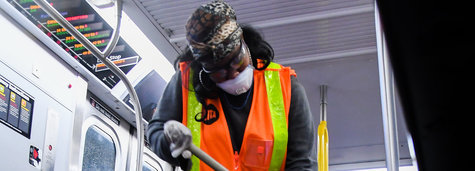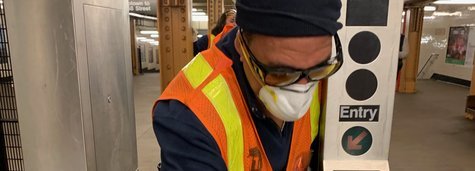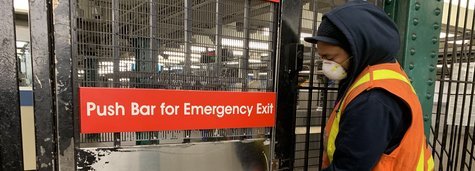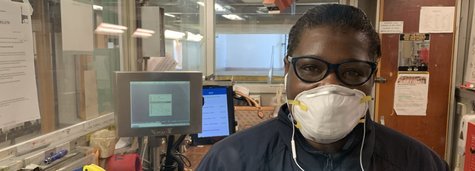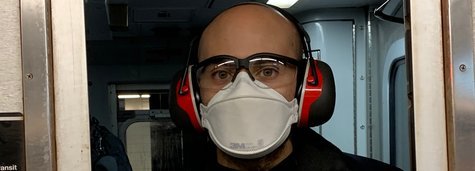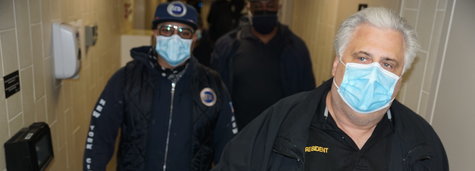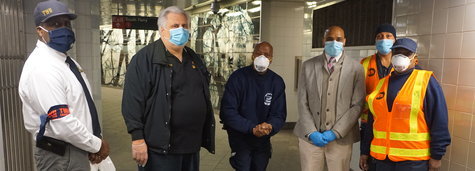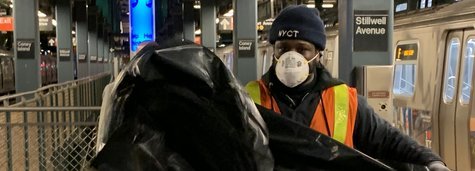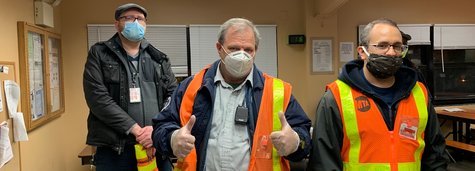Media Links
August 4, 2011
-
Source: Tulsa WorldMore than 200 Tulsa-based American Airlines workers whom the company is considering moving to the Dallas-Fort Worth area are opposed to relocating and are asking Tulsans' and elected officials' help in making their case.
-
Source: Think ProgressDeunionization is worsening the income inequality gap, accounting for nearly a third and a fifth of wage inequality among men and women, respectively. According to a study by Bruce Western of Harvard University, data proves “the role of unions as an equalizing force in the labor market“
-
Source: NY1The Lexington Avenue subway line can expect residual delays as the MTA looks into what caused a 6 train to derail early this morning in East Harlem.
-
Source: ABC New York
A man fell on the subway tracks due to a brain tumor he never knew he had. After the surgery, he says his life is changed.
-
Source: Queens CourierCuomo has been pretty much covered with Teflon so far, and with good reason. He has barely made a misstep. But now critics are starting to comment that Cuomo is not "a transit guy," that he is not seen much on the subway (as if there is an Albany stop on the IRT!) The question: can the guy who loves Harleys and muscle cars cure the troubles of mass transit. Now he gets his chance.
-
Source:The concrete workers who walked off the job at the World Trade Center will be back on the job Thursday, ending their three-day walkout.
August 3, 2011
-
Source:An early morning train derailment in East Harlem is causing some lingering headaches for riders on the Lexington Avenue line.
-
Source: NY1The Department of Transportation is installing 49 countdown clocks at intersections along the Grand Concourse, to reduce pedestrian accidents in the Bronx.
-
Source: Metro NYSo I’d like to ask the Transit Authority pooh-bahs, whose grand scheme runs the trains, why are we, the local riders, the mice down here? I mean who else is on this ship anyway? Isn’t it the mice’s ship?
-
Source: amNYNew Yorkers struggled Tuesday to find the right words to express their rage at a debt deal that avoided default but left the economy in fragile shape.
-
Source: WPIX 11
Whether called the "5 Foot Felon" or the "Pint Sized Perv," the suspect still calls himself a free man and is apparently still at it. According to NYPD Commissioner Ray Kelly the suspect has struck again and is linked to two more attacks this weekend.
-
Source: Infrastructurist
This is a guest post by Richard “Rich” Cooper, vice president of Research & Emerging Issues for the National Chamber Foundation (NCF), the U.S. Chamber of Commerce’s nonprofit think tank.
Last Friday, the Federal Aviation Administration’s (FAA) budget ran out. The House of Representatives was supposed to pass new funding to satisfy ongoing essential FAA projects – like improved radar for managing Louisiana-Texas airspace or installing approach path indicator lights. Because of the ongoing Congressional battles on the debt ceiling and other matters, it failed to pass new funding and the FAA went into partial shutdown. Last Saturday, 4,000 FAA employees were laid off, and construction projects to modernize numerous airports all came to a halt.
While the partial shutdown of the FAA shows the ramifications from a Washington standoff, it also speaks to the wider issue of how we think about infrastructure in this country. Airways, roads, bridges, rails and utilities are a part of America’s vast and impressive infrastructure, what has long been the gold standard for a developed, prosperous nation. Like all things, however, infrastructure requires updating and improvements, and for decades, leaders in the government (as well as the private sector) have been remiss in ignoring our national infrastructure needs.
That was the theme of a recent program hosted by the National Chamber Foundation, “Infrastructure: What We Want; What We Need.” The keynote speaker was retired Commandant of the U.S. Coast Guard Adm. Thad Allen, who talked about the importance of building resilience into our communities and infrastructure – lessons he learned firsthand while leading the response to Hurricanes Katrina and Rita, as well as the BP oil spill. Also on the program was a group of panelists from the public and private sectors who raised points on American competitiveness and the need for public-private partnerships.
One key recommendation revealed by the panel is for state and local governments to work with the private sector to address infrastructure needs; this because additional funding isn’t going to come from Washington. Take President Barack Obama’s Monday night address to the country about the ongoing debt crisis. He warned that unless we address our growing national debt, America “won’t have enough money to make job-creating investments in things like…infrastructure.”
Too true. Yet, it’s not simply that we don’t have enough to pay for updating our critical infrastructure – it’s that, proportionally, we don’t dedicate enough funds to keeping our infrastructure up to date in the first place. The (unspoken) sentiment among the public and private sector experts at the event was that we are encountering an absence of leadership on this issue. There is a fundamental problem with the way our leaders view infrastructure – it is not as high a priority as it needs to be.
Further, there are not enough voices in the public and private sector making clear infrastructure’s central role in rebuilding America. Certainly there are a lot of loud voices inside the Washington Beltway, but are they clamoring for their party or their country’s needs?
Without a strong and up-to-date infrastructure, our economy will be hard-pressed to recover from the 2009 recession, compete with China, India and other countries, and build the kind of resilience into our infrastructure that will allow us to bounce back from disaster, whether natural or manmade. Absent that, we will see not just the partial shutdown of a federal agency but severe, long-term consequences for the entire country.
-
Source: NY ObserverMaybe all of those second-quarter reports lauding the return of Manhattan real estate convinced New York's Common Retirement Fund that investing in it is a good idea. (But remember how that worked out for California’s pensioners and Stuy Town?)
-
Source: Think ProgressWith the debt ceiling controversy all but resolved, and hostage-taking once again proven to be an effective strategy for achieving conservative policy goals, Washington is wondering what the next fight will be. Byron Tau and Ben Smith in Politico plausibly speculate that the scheduled September 30 sunset of the federal gasoline tax may be the culprit. The gas tax, in addition to serving important environmental goals, is the means by which the federal government finances investments in transportation infrastructure. Traditionally, reauthorizing the tax for that purpose has been uncontroversial (though the idea of raising it to finance needed infrastructure upgrades hasn’t been) but in this day and age everything could be on the table and Tau & Smith report that Grover Norquist seems to be at least considering the idea:
-
Source: WNYCNew York City is not enforcing a 2009 state law that requires owners of foreclosed properties maintain them, according to the state senator who wrote the law.
-
Source: Wall Street JournalCarpenters are refusing to work at the World Trade Center and other sites in solidarity with cement laborers who have staged a work stoppage as they negotiate a new contract.
-
Source: NY TimesEason Alonzio, 48, was left in a social service agency van outside a daytime program in East Harlem for the developmentally disabled.
-
Source:A special needs school bus collided with a truck in East Harlem Tuesday afternoon, the FDNY said.
-
Source: DNAinfo.comA Central Parking location inside the George Washington Bridge Bus Terminal will become the construction headquarters for the station's overhaul.
-
Source: DNAinfo.comA group of rabbis and community members called on a kosher cheese company to sever its ties with a Brooklyn distributor that was found to have violated workers' rights.


